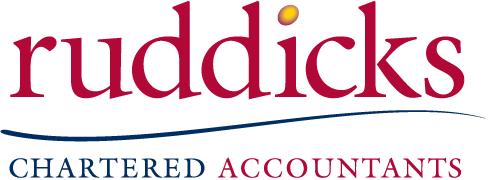Mid-year economic and fiscal outlook (MYEFO) 2011/2012
However, deteriorating global economic and financial conditions have led to a weaker economic and fiscal outlook in Australia and substantial reductions to government revenues. As a result of the MYEFO, taxation changes described below have been introduced to mitigate the effects of the weaker outlook. More information on MYEFO is available at http://www.budget.gov.au.
Extended reduction to minimum payment amounts for account-based pensions in 2012-13
The Assistant Treasurer announced an extension to the pension drawdown relief which reduced the minimum pension payment amounts. Minimum payment amounts for account-based, allocated and market linked (term allocated) pensions will continue to be reduced by 25 per cent for 2012/13, and will not be removed completely as announced in the Federal Budget earlier in the year.
The table below summarises the required minimum withdrawal amounts as a percentage of the pension balances.
Age as at 1 July | Minimum % withdrawal for the 2008/09 to 2010/11 years | Minimum % withdrawal for the 2011/12 and 2012/13 years |
Under 65 | 2% | 3% |
65-74 | 2.5% | 3.8% |
75-79 | 3% | 5% |
80-84 | 3.5% | 5.3% |
85-89 | 4.5% | 6.8% |
90-94 | 5.5% | 8.3% |
95 or more | 7% | 11% |
The decision came as a result of continued volatility in equity markets, with prices still remaining significantly below the pre-GFC levels. Reduced drawdown amounts will decrease the need for self-funded retirees to sell assets at a loss in order to meet the minimum pension payments.
No contributions tax on mandatory contributions for low income earners
Individuals earning up to $37,000 will effectively pay no tax on their superannuation guarantee (SG) contributions from 1 July 2012. The 15% contributions tax usually payable by superannuation funds will effectively be refunded into the superannuation accounts of eligible taxpayers.
Individuals who receive less than 10% of their income through employment or business will not be eligible. This is in line with eligibility criteria for the co-contribution. Individuals will only receive a payment if their entitlement is at least $20, to reduce administration costs. No additional paperwork will be required from the eligible individuals as the ATO will use available data to identify the relevant taxpayers.
Superannuation co-contribution changes
From 1 July 2012, the Government will reduce the super co-contribution by 50% to 50c per $1 contribution, reducing the maximum available benefit from $1,000 to $500. Additionally, those individuals who are earning more than $46,920 will no longer get a partial benefit compared with the current threshold of $61,920.
Concessional contribution caps
The Government will pause the indexation of the superannuation general concessional contributions cap for one year in 2013-14, so it remains at $25,000. Indexation of the cap will be deferred until 2014-15, when the cap is expected to rise to $30,000. The indexation of non-concessional contributions caps will also be frozen.
The pause in indexation will also apply to the concessional contributions cap for individuals aged 50 and over, currently set at $50,000 until 30 June 2012 and which will drop down to the standard $25,000 cap from 1 July 2012. However, in the 2011-12 Federal Budget, the government announced that they will set the higher concessional super contributions cap for eligible individuals who are 50 years old or over with total super balances of less than $500,000 to $25,000 above the general concessional cap. This measure, however, has not yet been passed by parliament and the government continues to consult on it.
Increased tax-free threshold
The tax free threshold will increase from $6,000 to $18,200 from 1 July 2012 and the Government estimates that this increase will free around one million low-income earners from needing to lodge a tax return. This change is one of the main compensation measures in relation to the ‘carbon tax’ introduced by the Government earlier in the year.
Dependent spouse tax offset
The Dependent Spouse Tax Offset will be restricted from 1 July 2012 to those with spouses born before 1 July 1952 only. This reform will not affect people whose spouse is an invalid or a carer, or who receive the zone, overseas forces or overseas civilian tax offsets.
Deferred measures
The start date of the standard deduction for work related expenses and the 50% tax discount for interest income will be deferred for one year until 1 July 2013.
Changes to Living-Away-From-Home-Allowance (LAFHA)
The Treasurer announced the following change to FBT in relation to Living-away-from-home allowances and benefits from 1 July 2012 for both new and existing arrangements, as a result of MYEFO:
- Access to the tax exemption for temporary residents will be limited to those who maintain a residence for their own use in Australia, which they are living away from for work purposes, such as "fly-in-fly-out" workers; and
- All individuals will be required to substantiate their actual expenditure on accommodation and food beyond a statutory amount.
If you are not sure what the substantiation requirements are, please contact your Ruddicks adviser to discuss this. Keeping proper records will ensure that you are not disadvantaged by missing out on legitimate claims.
Super guarantee age limit increased
Legislation amending the superannuation guarantee age limit from 70 to 75 has been passed by the House of Representatives, though it is yet to pass the Senate. The implication of the amendment is that from 1 July 2013 employees aged 70-75 will receive the mandatory superannuation guarantee contributions for the first time. Also, employers will be able to claim tax deductions for super guarantee contributions made for employees aged 70-75 from 1 July 2013. This change will not affect individuals over the age of 75, and contrary to some media reports, there is still no ability to claim deductions for super contributions in respect of persons aged over 75.

